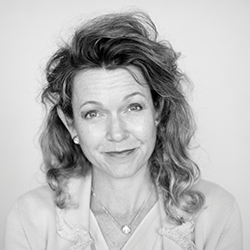For professor, foster parenting is ‘most important thing I will ever do’

November is National Adoption Month, an initiative of the U.S. Children’s Bureau aimed at promoting awareness of the need for more families to adopt children in foster care.

Elise Dallimore
Elise Dallimore—associate professor of communication studies at Northeastern—is a foster parent herself and a licensed trainer of those who want to foster or adopt a child in Massachusetts. We asked her to discuss the challenges facing the foster care system, her experience as a foster parent, and her new groundbreaking study aimed at improving the recruitment and retention of foster parents.
Nearly 428,000 children were living in foster care in 2015, according to the latest data from the U.S. Department of Health and Human Services. But the National Foster Parent Association reports that as many as 60 percent of new foster parents quit within their first year. What are the biggest challenges facing the foster care system today?
This is a national health epidemic and human rights crisis; I don’t believe I am hyperbolizing when I say this. Foster children are largely invisible until there is a high-profile abuse case or even death linked to the foster care system. Foster care is highly decentralized. Most states have little idea what other states are doing. Even states considered to be higher performing struggle to recruit and retain foster parents; they, too, lose foster parents almost as quickly as they can be recruited and trained. In spite of structural changes designed to improve overall care of foster children, there remains a chronic shortage of foster parents, let alone what states would consider high-quality resource parents. If more people don’t step up and become foster parents, where will state systems find homes for these children?
You’ve been a foster parent for the past seven years. How would you describe the experience?
People want to hear that being a foster parent is not hard. But it’s the hardest thing I have ever done. It’s harder than earning a PhD, harder than earning tenure. Experts are only beginning to understand the complexity of what trauma does to children even after they have been removed from it. You don’t undo trauma—you help children manage, and hopefully move beyond it, but it’s naïve to think you can put a child in a loving home and everything will be just fine.
Having said that, being a foster parent is the most important thing I believe I will ever do with my life. I was raised to believe that the world is not all about me and that every human being has a moral obligation to assess their relative strengths and weaknesses and utilize those strengths to make the world a better place for other people.
Being a foster parent has not only changed my life, but it has also changed the life of our biological son. It’s made him more empathetic and helped him realize that the small suburban community in which we live is not the way most of the world lives. One of my family’s mottos is “we do hard things,” and if you’re not utilizing your talents and resources to advocate on behalf of marginalized populations that are not given voice or credence, then what’s the point? Everybody has something to teach you, and bringing foster children into your home and trying to help them is a very humbling experience. It makes you realize that you don’t have things figured out as much as you think you do.
You are the principal investigator of a new longitudinal research study examining the attitudes and experiences of hundreds of foster and adoptive parents in the states of Mississippi and Missouri. What’s the ultimate goal of this project, which is being supported by the National Council for Adoption?
Never before has there been a study that looks at foster parent recruitment and retention on this scale. It is designed to track foster parents from the moment they express interest in fostering a child in order for us to identify what motivates those who persist in spite of the many difficulties. What we’ve found in the past is that the people who persist are those who see fostering a child as a moral obligation either tied to some theological or religious value structure or through a sense of social responsibility.
The ultimate goal is to help inform both state and federal legislative structures that define and regulate foster care systems, especially as it relates to protecting and advocating for children in care as well as the families caring for them. In the short term, we want to raise awareness about the more than 400,000 children in foster care and hopefully encourage people who might not have considered foster care, as a way of supporting children and their community, to do so. This is a community problem. For example, if a child in school is neglected or abused, it impacts learning for everyone who is in that child’s class.
Statistics show that children who are exposed to trauma have exponentially higher rates of drug and alcohol abuse and mental health problems in adolescence. If we don’t support children in foster care now, we will be supporting them as they age out of the system and need to be treated for mental health and substance abuse issues at a disproportionate rate from the population at large.





